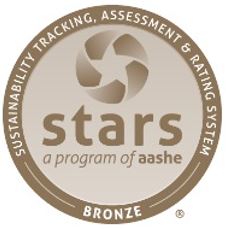Sustainability
History of Sustainability Initiatives at South Seattle College
For decades, there has existed an ad-hoc group of faculty, students, and staff that undertook sustainability projects and initiatives. Those initiatives included the Community Orchard of West Seattle (COWS), developing green building courses at the Georgetown campus, creating sustainability-related courses by faculty, recycling and waste efforts, compliance-based environmental stewardship, among others.
In 2009, then Chancellor Jill Wakefield created the Chancellor’s Sustainability Initiative to focus sustainability efforts across Seattle Colleges. The Sustainability Initiatives led to the creation of the Seattle Colleges Sustainability Committee, a representative body of students, staff, and faculty from each of the Seattle Colleges (e. South Seattle College, Seattle Central College, North Seattle College, Seattle Vocational Institute, and their satellite campuses).
In 2013, Seattle Colleges Sustainability Committee hired their first Sustainability Coordinator to help complete sustainability assessments of each college and to create a roadmap for making Seattle Colleges a regional leader in college sustainability. South Seattle College completed an AASHE STARS assessment in 2013, earning a Bronze (27 points). A Sustainability Committee was formed at South circa 2015. South completed another AASHE STARS assessment in 2017 and nearly doubled their score to 47 (Bronze).
Sustainability Highlights
Seattle Colleges Greenhouse Gas Emissions Baseline & Reduction Targets
The Washington State Agency Climate Leadership Act of 2008 mandated that all state agencies begin tracking greenhouse gas emissions annually and set specific reduction targets compared to the 2005 baseline year. Seattle Colleges and South Seattle College established a 2005 baseline for greenhouse gas emissions and set reduction targets in 2020, 2035, and 2050.
South Seattle College Arboretum
The South Seattle College Arboretum was established by the college and the South Seattle College Foundation in 1978, in part as the result of a petition by the Landscape Horticulture (LHO) program students for an arboretum to serve as their living laboratory. The 6-acre site is located at the north end of campus on a bluff over-looking downtown Seattle, Elliot Bay, and the West Duwamish Greenbelt. The Seattle Chinese Garden borders the Arboretum.
The Arboretum is an important part of the SSC LHO program. As part of their studies, students designed and built the arboretum. It is used as a laboratory for courses in plant identification, arboriculture, pruning, irrigation, garden renovation, plant problem diagnostics, landscape management and landscape construction courses. The Arboretum is also used as an outdoor classroom by professional horticulturists, hobby gardeners, and other college programs. Most of the plants on the Washington Certified Professional Horticulturist exam can be found in the South Seattle College Arboretum. The Arboretum has been “pesticide-free) since 2008.
Community Orchard of West Seattle (COWS)
Community Orchard of West Seattle (COWS) is a non profit organization and partners with Nature Stewards. COWS provides a home-scale model and venue that demonstrates how much food can be grown on a city-sized lot. Produce goes to volunteers and local security programs. COWS broke ground in the winter of 2011 and in its first year converted a narrow strip of unused land on the north east end of South Seattle College main campus. Today, you will find a working community garden and growing food forest orchard. COWS uses permaculture and organic growing principles. All efforts are made in demonstrating low-maintenance sustainable food production strategies.
AASHE STARS 
South Seattle College received a Bronze STARS in 2014 and 2017, but improved its score from 27 in 2014 to 43 in 2017. The Association for Advancement of Sustainability in Higher Education’s (AASHE) Sustainability Tracking, Assessment, and Rating System (STARS) is an internationally recognized framework for assessing sustainability on college/university campuses (more than 750 institutions on six continents are using STARS).